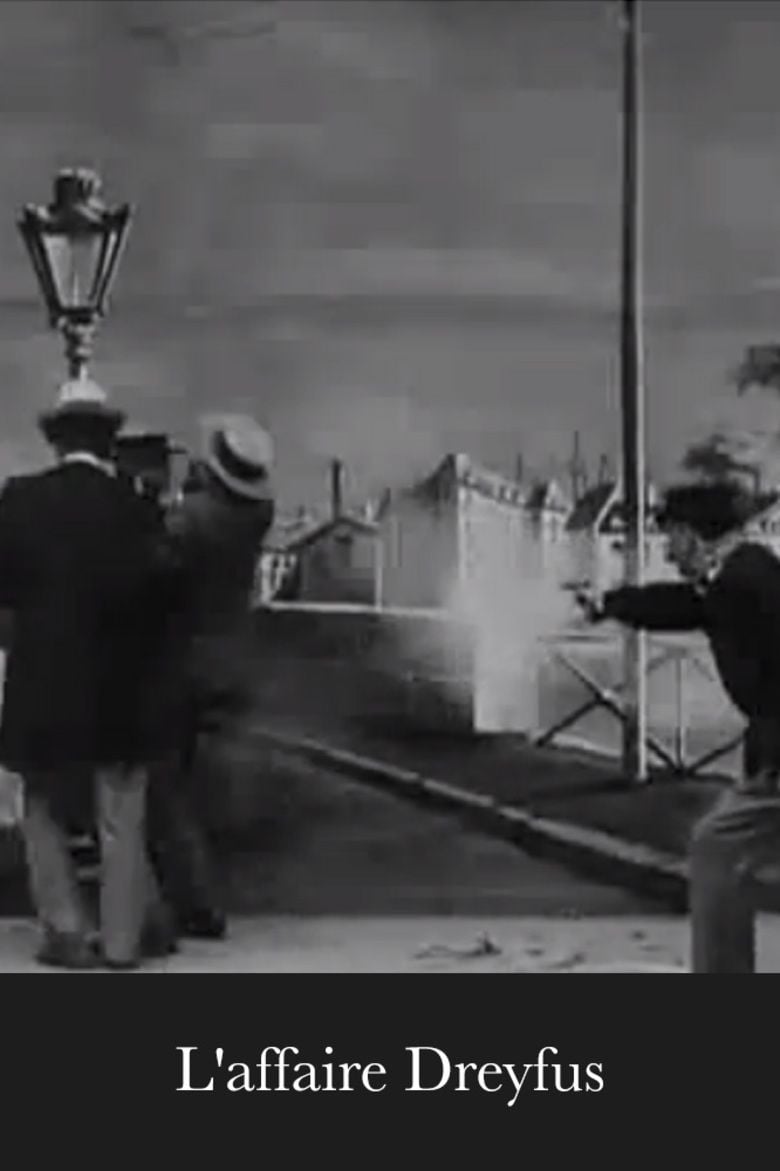France Revisits The Dreyfus Affair: A Push For Recognition

Table of Contents
The Enduring Legacy of the Dreyfus Affair
The Dreyfus Affair, spanning from 1894 to 1906, involved the wrongful conviction of Alfred Dreyfus, a Jewish French artillery officer, for treason. This infamous case exposed deep-seated antisemitism within the French military and government, sparking a national crisis that profoundly impacted French society, politics, and the very concept of justice. The affair's significance extends far beyond its immediate consequences; it serves as a stark reminder of the dangers of unchecked prejudice and the importance of safeguarding due process.
- Antisemitism as a driving force: The pervasive antisemitism within French society at the time played a crucial role in Dreyfus's wrongful conviction. False evidence was fabricated, and existing prejudices were exploited to target him.
- The role of the military and the government in the cover-up: The French army and government actively participated in a cover-up to protect their reputation and avoid admitting their errors. This institutionalized denial of justice fueled public outrage.
- The impact of Emile Zola's "J'accuse" open letter: Emile Zola's courageous open letter, published in L'Aurore, denounced the injustice of the trial and ignited a national debate, galvanizing public opinion against the military's actions. This pivotal moment shifted the narrative surrounding the Dreyfus Affair.
- The division within French society: The Dreyfus Affair deeply divided French society, polarizing opinions along antisemitic and pro-justice lines. The conflict highlighted the fragility of French republican ideals and the persistence of prejudice.
- Lasting effects on French law and judicial processes: The affair led to significant reforms in French law and judicial processes, aiming to prevent similar injustices from occurring in the future. It highlighted flaws in the legal system and spurred calls for greater transparency and accountability.
Current Efforts for Recognition and Reparation
Despite the eventual exoneration of Alfred Dreyfus, the fight for full recognition of the injustice he suffered continues. Contemporary movements are advocating for formal apologies, memorials, and educational programs aimed at ensuring that the lessons of the Dreyfus Affair are not forgotten.
- Recent exhibitions and documentaries focusing on the Dreyfus Affair: Museums and media outlets are creating new resources to educate the public about this pivotal event, ensuring its relevance for modern audiences. These efforts contribute to a more comprehensive understanding of the Dreyfus Affair's complexities.
- Calls for the renaming of streets or buildings: Activists are pushing for the renaming of public spaces to honor Alfred Dreyfus and recognize the injustice he endured. This symbolic gesture aims to rewrite the historical narrative and give Dreyfus his rightful place in French history.
- Increased educational curriculum incorporating the Dreyfus Affair: The Dreyfus Affair is increasingly integrated into French school curricula, enabling younger generations to learn about this crucial historical event and its enduring significance. This educational focus aims to prevent a recurrence of similar injustices.
- Government statements acknowledging historical injustices: While formal, sweeping apologies have been debated, government statements increasingly acknowledge the historical injustices inherent in the Dreyfus Affair. This reflects a growing societal understanding of the affair's significance.
- The role of Dreyfus' descendants in these efforts: Alfred Dreyfus' descendants continue to actively participate in advocacy efforts, ensuring that the memory of their ancestor's suffering and the lessons of the Dreyfus Affair remain central to French public discourse.
The Ongoing Debate and Challenges
Achieving full recognition for the injustice suffered by Alfred Dreyfus is not without its challenges. Certain segments of French society remain resistant to fully confronting the historical context of the Dreyfus Affair and its implications for contemporary society.
- Resistance from certain segments of French society: Some groups continue to downplay the role of antisemitism in the Dreyfus Affair, hindering efforts toward comprehensive acknowledgment and reconciliation.
- Debate over the level of apology or reparation deemed necessary: Disagreements persist over the appropriate form and extent of apology and reparation for the injustices suffered by Dreyfus and his family.
- Balancing historical accuracy with national reconciliation: The process of acknowledging past wrongs requires a delicate balance between historical accuracy and national reconciliation, which can be challenging to achieve.
- The challenges of addressing systemic antisemitism in modern France: The Dreyfus Affair serves as a stark reminder of the ongoing struggle against antisemitism in France. Addressing this issue requires a multifaceted approach that involves education, legislation, and societal change.
- The question of legal redress after such a long time: The possibility of legal redress after more than a century presents complex legal and ethical challenges.
The Dreyfus Affair and Modern Antisemitism
The Dreyfus Affair remains highly relevant in understanding contemporary issues of antisemitism in France. The historical context provides crucial insight into the persistence of prejudice and the importance of combating antisemitism through education and vigilance.
- Statistics on antisemitic incidents in modern France: Data on antisemitic incidents in modern France highlight the continuing need to address prejudice and discrimination.
- The role of education in combating antisemitism: Education is crucial in fostering understanding and combating antisemitic attitudes. The Dreyfus Affair offers a powerful case study for teaching about the dangers of prejudice and the importance of tolerance.
- The importance of remembering the past to prevent future occurrences: Remembering the Dreyfus Affair serves as a vital reminder of the consequences of unchecked prejudice and the importance of vigilance in preventing similar injustices from occurring in the future.
- The ongoing need for vigilance against antisemitism: The legacy of the Dreyfus Affair underscores the ongoing need for vigilance against antisemitism and other forms of prejudice.
Conclusion
The renewed focus on the Dreyfus Affair is vital for understanding France's past and present. The ongoing efforts to achieve full recognition of the injustice suffered by Alfred Dreyfus highlight the complexities of historical reconciliation and the enduring struggle against antisemitism. While challenges remain, the continued discussion and advocacy surrounding the Dreyfus Affair are crucial steps towards ensuring that the lessons learned from this pivotal historical event are not forgotten. Learn more about the Dreyfus Affair, participate in discussions surrounding historical justice, and support efforts to combat antisemitism. Further research into the Dreyfus Affair will provide a more complete understanding of its lasting impact.

Featured Posts
-
 Your Guide To Getting Bbc Big Weekend 2025 Sefton Park Tickets
May 24, 2025
Your Guide To Getting Bbc Big Weekend 2025 Sefton Park Tickets
May 24, 2025 -
 Amundi Msci World Catholic Principles Ucits Etf Acc Net Asset Value Nav Explained
May 24, 2025
Amundi Msci World Catholic Principles Ucits Etf Acc Net Asset Value Nav Explained
May 24, 2025 -
 Nyt Mini Crossword March 24 2025 Hints To Help You Solve
May 24, 2025
Nyt Mini Crossword March 24 2025 Hints To Help You Solve
May 24, 2025 -
 Apple Stock Faces Q2 Earnings Test Below Key Support
May 24, 2025
Apple Stock Faces Q2 Earnings Test Below Key Support
May 24, 2025 -
 Carry On Restrictions Southwest Airlines New Rules On Portable Chargers
May 24, 2025
Carry On Restrictions Southwest Airlines New Rules On Portable Chargers
May 24, 2025
